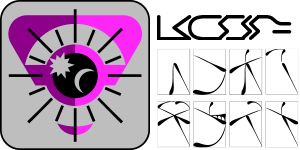A review of how nouns work in Fenekere
This article is a rewording of the information found in Fenekere’s Root Words and Their Derivatives, but focused specifically on nouns. It might be review for you, or it might be an easier to access article of information.
Fenekere root words are all proper nouns. From those proper nouns, a whole slew of other kinds of nouns can be derived. This effectively works the same way with every root word, regardless of the nature of its original meaning.
To identify any given word as a noun, the second syllable must contain an ‘e’, an ‘a’, or an ‘i’.
Given that, any of the other syllables may contain any combination of the other vowels, and this entire combination describes exactly what the noun means and where it falls into a sentence.
As described in the Root Words article, the first syllable acts as sort of an article for the noun, telling whether it is definite, indefinite, or a variation of an idea or concept held by one or more people.
The third syllable defines which subclause the noun belongs to, whether it is the subject of the sentence, or the object of a verb of one of the subclauses.
The fourth syllable defines the relation of that noun to the meaning of the root word. The root word is generally considered to be an agent capable of performing a verb.
If a noun ends with an ‘e’, it is an example of that agent.
If a noun ends with an ‘a’, it is an example of the verb, a noun describing an action.
If a noun ends with an ‘i’, it is an agent, but one that is an imitation of the root, such as an unskilled artist, an impostor, or something that just happens to be performing the verb but otherwise has another purpose.
If a noun ends with an ‘o’, it refers to the product of the verb, such as a poem which is produced by the poet.
If a noun ends with a ‘u’, it refers to the effect of the product of the verb, an effect once removed, such as the reactions of an audience upon reading or hearing a poem.
A novel example of the kind of noun you can create from a root might be “funimaru”, from the root “fenemere” meaning “the Poet”. Referring to the derivatives chart in Fenekere’s Root Words and Their Derivatives, you can see that it means something like, “the commonly held stereotype of an audience’s reaction to a poem” and it falls into the object position of a sentence.
